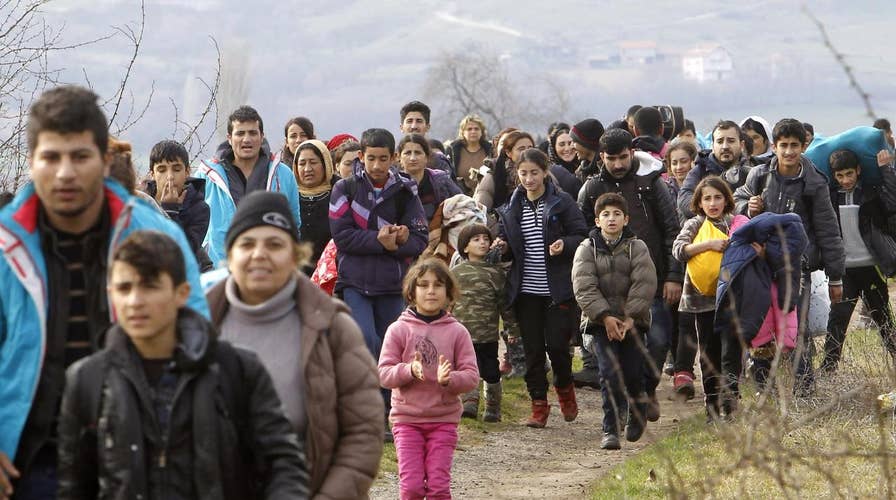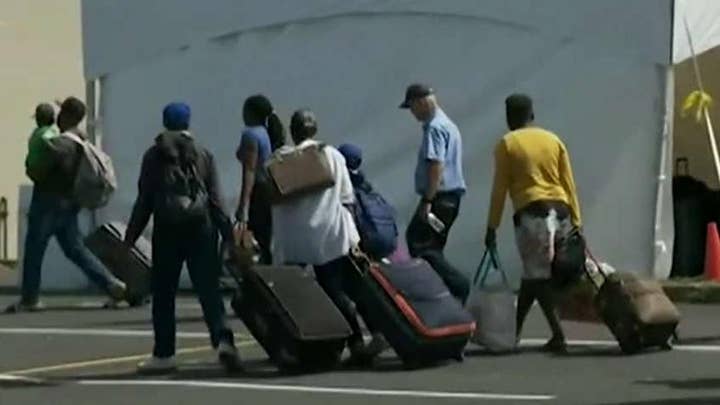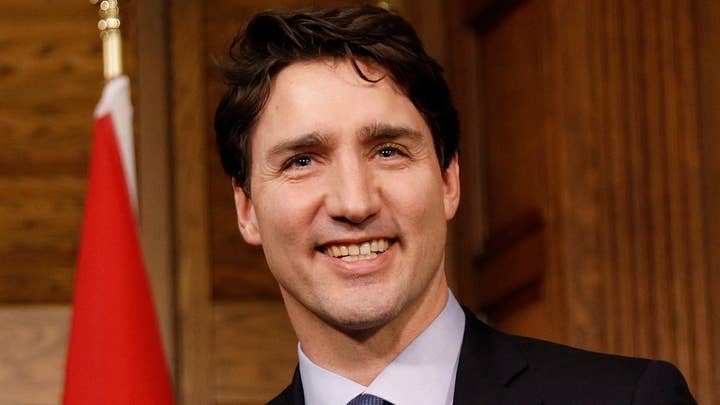Number of refugees crossing from US to Canada soars
Molly Line reports from Montreal on Canada's refugee crisis.
Amid an ongoing illegal immigration crackdown in the United States and the Trump administration's hardline rhetoric, Canadian officials fear more illegals living in the U.S. could be driven to seek refuge north of the border.
More than 13,000 people crossed into Canada illegally in 2017 alone, according to Canadian government data. That’s more than five times the number intercepted by Royal Canadian Mounted Police in 2016.
The influx created a massive backlog of refugee claimants and, this year, the Canadian government wants to avoid a repeat --especially after the Trump administration announced it would be ending the temporary protective status of an estimated 200,000 Salvadoran immigrants in the U.S., though that change won't occur until 2019.
“You can’t just come to Canada and cross the border and stay there for the rest of your life,” Pablo Rodriguez, a member of the Canadian Parliament and a government envoy to the U.S., told the Los Angeles Times. “We want to avoid a humanitarian crisis along the border.”
Rodriquez, himself an immigrant who arrived to Canada as a political refugee from Argentina, is among several Canadian lawmakers and dignitaries sent to the U.S. by Prime Minister Justin Trudeau in recent months to combat misinformation about gaining asylum across the border.
He recently told a dozen immigration attorneys and immigration rights leaders in California that, while Canada welcomes immigrants and refugees, any entry must be made legally.
“We want to have an honest, transparent conversation,” Rodriguez said. “Canada is a very open country, but there are rules.”
Rodriguez’s message is not that different from the rhetoric employed by immigration hardliners in the U.S., including President Trump; however, Canada is viewed as having a far more liberal government that is more welcoming to refugees.
But even that perception may be changing. After one of Trump's proposed travel ban executive orders, Prime Minister Justin Trudeau tweeted in January: “to those fleeing persecution, terror & war, Canada will welcome you regardless of your faith." But by the summer, Trudeau was preaching about "proper processes" for "orderly" migration.
Luis Alvarez, who served as a paralegal in Toronto before moving to Orange County a few months ago, told the Times that Canada has multiple routes beyond seeking asylum for people to stay legally. He said for those who don’t qualify, there are appeals processes and other legal remedies such as Canadian residency on humanitarian and compassionate grounds.
'INAPPROPRIATE' TO ASK ASYLUM SEEKERS AT CANADA BORDER ISIS OPINION, MINISTER SAYS
“For me, I think it’s a super solution for a lot of people,” he said. “You just need to know how the system works and retain a good attorney. If I had lost my asylum claim here and was about to be deported, I would make sure to make my way up there.”
“Get the facts and make a decision based on the right facts, before leaving your jobs and taking your children out of school and going up there hoping to stay there forever,” Rodriguez said. “Because if you don’t qualify…you will be returned -- and in this case not the United States. You will have lost your status and would be returned to your country of origin.”










































